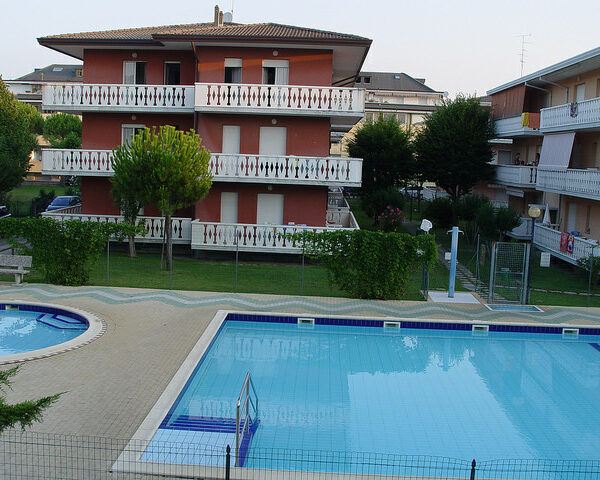
If you plan to buy or sell timeshare, it’s best to know the ins and outs, and the pros and cons of both ends. As with any other things, we have to thoroughly look into things before investing, buying, or selling.
What is a timeshare? A Timeshare is a type of property ownership, mostly of vacation real estate – where buyers or owners purchase the right to use a unit of real estate over certain periods of time (a week or so). Properties include vacation homes, condominiums, and resorts, and in some instances it could be private jets. Further, selling could be partial ownership, lease, or “right to use”. With timeshare, you only purchase the time you need to spend on your vacation.
Timeshare resorts most famous brands include Marriott, Hilton, Hyatt, Wyndham. A whole list of more known brands are here.
If you and your family enjoy going to a certain city, or you enjoy a particular activity every year, timeshares are an ideal investment. You can spend a winter week on your favorite ski resort every year and not worry about booking accommodation – the unit you paid for is yours at the time on calendar you bought it.

Table of Contents
Usage
Timeshare owners can make use of their bought shares by:
Using their usage time as stated on contract.
Renting out their owned usage, if the contracts allow so. In cases when owners are not able to allot the time usage for a vacation, they can rent out that week to willing vacationers.
Giving the usage time as a gift to family and friends.
Donating it to a charity (after the charity of choice consider the fees) is a good way to not pay the maintenance bills if you can’t go on a yearly vacation anymore. You can also get a tax deduction from your share while doing some good for a worthy cause.
Exchange internally within the same resort or resort group
Exchange externally into thousands of other resorts
Sell ownership either through traditional or online advertising, or by using a licensed broker.
Contracts
Deeded ownership
With deeded ownership, the purchase of a timeshare unit is for life or until it gets sold.
Right-to-use contracts
A right-to-use contract grants an owner the right to use a timeshare unit for a specific number of years, including on clause an expiration date within the contract.

Varieties of Timeshares
As timeshares are given to owners on a week term, they typically use one of the following systems:
Fixed-week ownership
A fixed-week ownership is the most common unit of sale in timeshares. The property or resort has a calendar enumerating the weeks and an owner may own a deed to use a unit for a single specified week they prefer. This will ensure owners of the same vacation week every year, but it will be difficult to exchange as the contract doesn’t allow it.
Floating-week ownership
Contrary to a fixed-week ownership, a floating-week contract specifies the number of weeks held by each owner and from which weeks the owner may select for a stay. They can choose from the available weeks the dates they would want to use for vacation. This kind of ownership means it’s not guaranteed that you get the week you want because other owners with a floating-week contract might get the schedule you want first.
It is specially difficult during holiday season since a lot of vacationers book out resorts and accommodations.
Rotating or flex-week ownership
In the name of fairness, rotating or flex-week ownership gives all owners a chance for the best weeks sought by many. The weeks are rotated forward or backward through the calendar, for example, in year 1 the owner may have use of week 30, then week 31 in year 2, and then week 32 in year 3 and so on. Thus, owners get the chance to spend their vacations on weeks that might be convenient and booked out immediately, what is sometimes called prime week.
Points programs
The points system make use of points as timeshare ownership representation, based on factors such as resort location, size of the vacation property, and time of availability. The point system is a way developers use to have timeshare owner exchange usage either within their own resorts (internal exchange) or with other resorts as well (external exchange).
Points programs give the owner a number of points equal to the level of ownership every year. They can then use these points to book their travel within a resorts group.

Pros of Timeshare
Owning a timeshare property is advantageous if you enjoy going on a vacation in a particular location every year. It’s also reliable and convenient, you don’t need to book every time because you own the place for a particular span of time.
- Familiar vacation location every year
- Top quality property to stay at
- Secure and less hassle areas
- Guaranteed vacation accommodation every year
Cons of Timeshare
Maintenance fees and mortgage fees, if any, are the long-term costs owner might shoulder when they buy timeshares. A timeshare contract is binding, and can get difficult to walk away from.
- Significant ongoing costs
- Difficulty to change booked week or contract
- Timeshare ownership is not easy to resell
Selling Timeshare
As mentioned, selling a timeshare may not be as easy as selling other properties. There are several websites that you can use to list your share. You can also seek out a timeshare broker to help you find a new buyer. Also unlike other real estate properties, the resale price for a timeshare may be a great deal lower than the purchase price.
Buy or Sell Timeshare, Guarantee your Yearly Vacation
Owning a timeshare can be enticing but it does have aspects that need some thinking to do. While owning a timeshare guarantee you have a prime accommodation to stay at every year, the kind of contract might make it difficult for you to change dates in case unseen occurrences happen and you’re not able to go on your fixed week vacation.
Consider all the pros and cons first before getting your hands on a timeshare property. It’s a binding contract and if you are the kind of person who loves to explore different cities than a fixed location, hotels might be better.
|
|
|








Nice ideas and insights that property owners can refer through. Thanks for it.